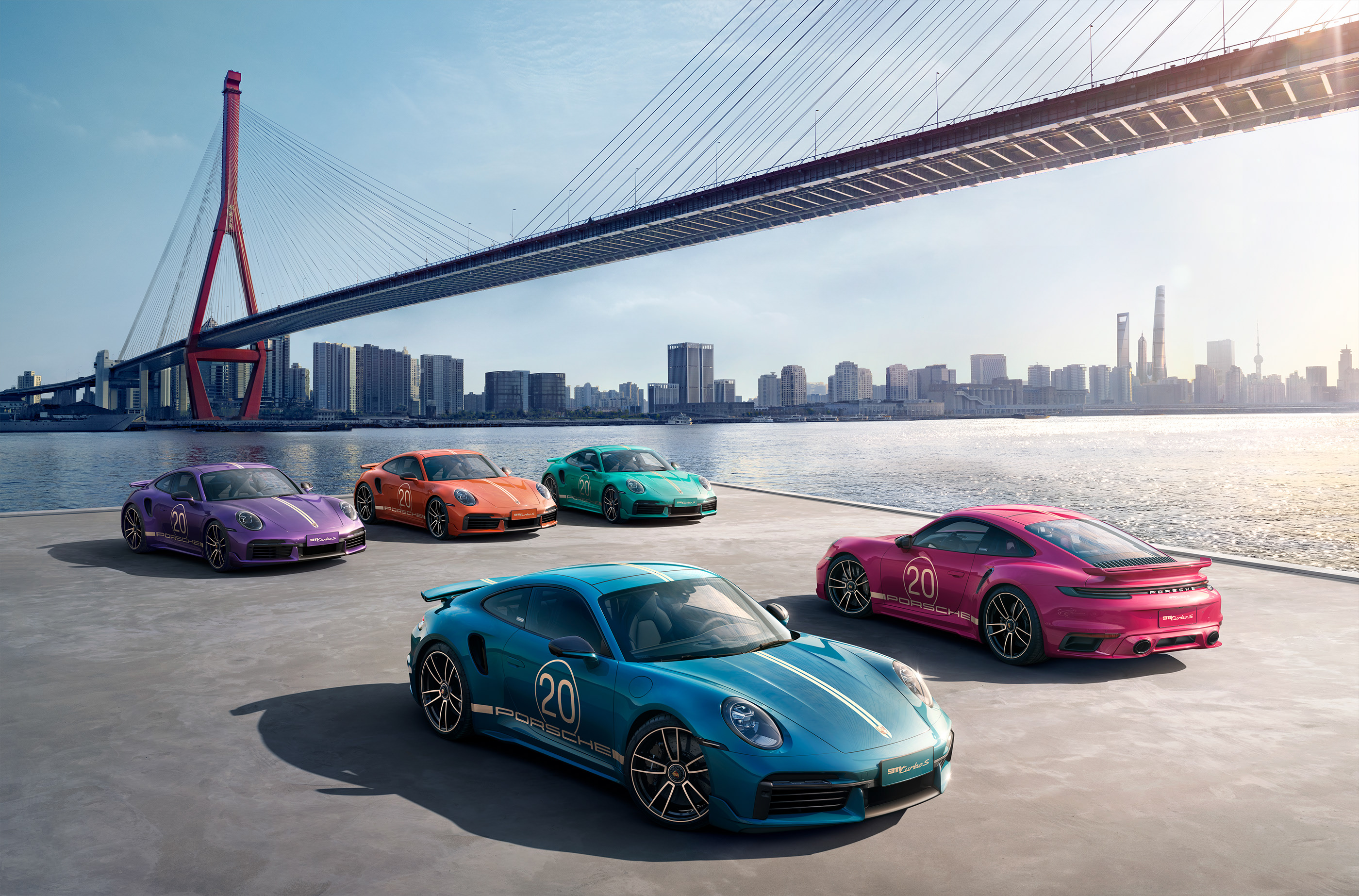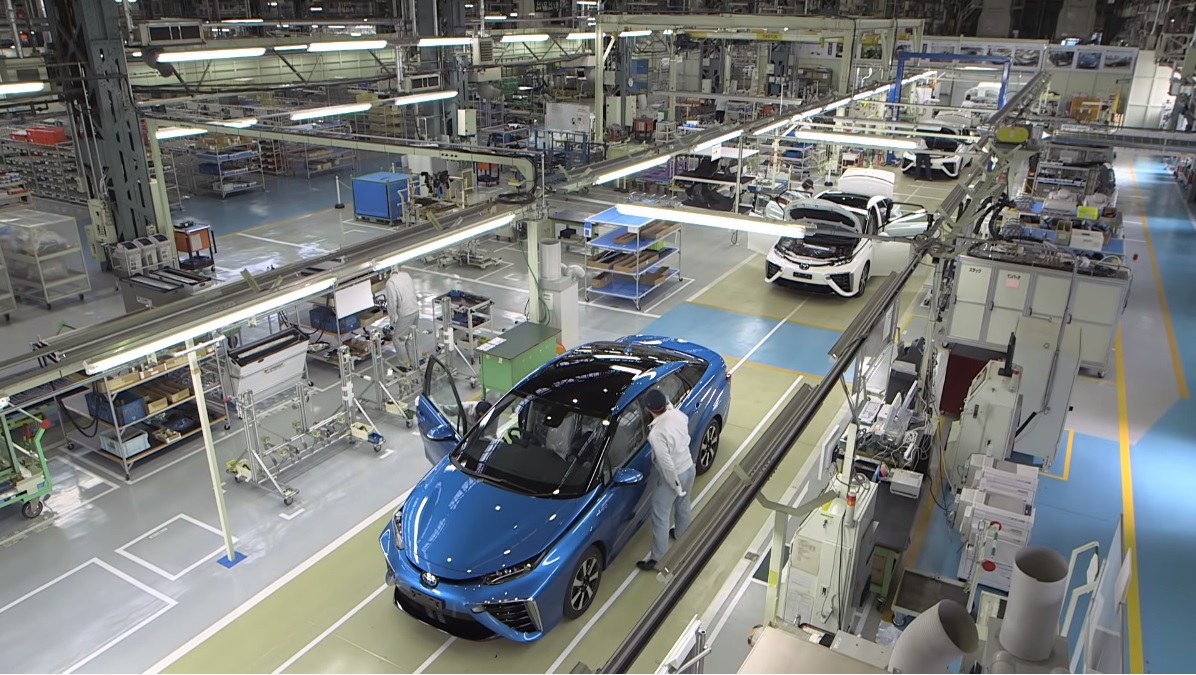BMW, Porsche, And The Shifting Sands Of The Chinese Automotive Market

Table of Contents
The Rise of Domestic Brands and Electric Vehicles
The Chinese automotive market is experiencing a surge in the popularity of domestically produced electric vehicles (EVs). This rapid growth, fueled by significant government investment in EV infrastructure and supportive policies, is reshaping the competitive landscape. Luxury brands, accustomed to dominance, are now facing stiff competition from ambitious Chinese automakers like BYD, NIO, and Xpeng, who are rapidly gaining market share.
- Increasing market share of Chinese brands: Domestic brands are not only offering competitive pricing but also innovative technology and features that appeal to Chinese consumers. Their rapid expansion and technological advancements pose a significant threat to established players.
- Growing consumer preference for EVs and hybrid vehicles: Environmental concerns and government incentives are driving a strong shift towards electric and hybrid vehicles, forcing luxury brands to accelerate their own EV development and deployment. This includes investment in charging infrastructure and battery technology.
- Government incentives and regulations promoting EV adoption: The Chinese government's strong support for the EV sector through subsidies, tax breaks, and stringent emission regulations is a major catalyst in this transformation. This creates both opportunities and pressures for luxury brands to comply and innovate.
- The need for luxury brands to invest heavily in EV technology and infrastructure: To remain competitive, luxury brands must significantly invest in research and development, manufacturing, and the establishment of charging networks to cater to the growing demand for EVs.
Changing Consumer Preferences in the Chinese Automotive Market
Understanding the nuances of the Chinese consumer is crucial for success in this market. Younger generations, in particular, are driving the change, prioritizing technology, personalization, and sustainability in their vehicle choices. This shift demands a strategic response from luxury brands.
- Emphasis on technology and digital features: Connectivity, advanced driver-assistance systems (ADAS), and autonomous driving capabilities are highly valued features. Luxury brands must incorporate cutting-edge technology to remain competitive.
- Growing importance of brand storytelling and social media marketing: Effective marketing strategies must leverage digital platforms and resonate with the preferences of Chinese consumers. Brand storytelling and engagement through social media are critical.
- Focus on personalization and customization options: Consumers are seeking more personalized experiences, demanding options for customization and tailoring vehicles to their specific tastes. Mass production alone is no longer sufficient.
- Shifting preferences towards SUVs and crossovers: The popularity of SUVs and crossovers continues to grow, reflecting a preference for practicality, space, and versatility. Luxury brands need to offer a diverse range of body styles.
- Increased scrutiny on environmental impact and sustainability: Growing awareness of environmental issues is impacting consumer purchasing decisions, increasing demand for environmentally friendly vehicles and sustainable manufacturing practices.
BMW's Strategy in the Chinese Automotive Market
BMW has recognized the challenges and opportunities presented by the evolving Chinese automotive market and has implemented a multi-pronged strategy to maintain its position.
- Localized production and partnerships with Chinese suppliers: BMW has invested heavily in local production facilities to reduce costs and improve responsiveness to market demands. Collaborations with Chinese suppliers further strengthen their local presence.
- Investment in electric vehicle technology and infrastructure in China: BMW is actively developing and producing electric vehicles tailored to the Chinese market, investing in charging infrastructure and battery technology to support EV adoption.
- Targeted marketing campaigns tailored to Chinese consumer preferences: BMW's marketing efforts are meticulously designed to resonate with the unique preferences and values of Chinese consumers, emphasizing technology, luxury, and social responsibility.
- Focus on innovation and technological advancements: BMW continuously invests in research and development, incorporating cutting-edge technology and innovative features into its vehicles to meet the evolving demands of Chinese consumers.
- Development of electric models specifically for the Chinese market: BMW recognizes the importance of offering models specifically designed and tailored to the needs and preferences of the Chinese market, including electric vehicles.
Porsche's Strategy in the Chinese Automotive Market
Porsche, while maintaining its focus on high-performance vehicles and exclusivity, is also adapting to the changing landscape of the Chinese automotive market.
- Emphasis on exclusivity and brand heritage: Porsche leverages its strong brand image and heritage, emphasizing the exclusivity and prestige associated with its vehicles. This resonates with affluent Chinese consumers.
- Focus on high-performance vehicles and sports cars: Porsche continues to focus on its core strength: high-performance vehicles and sports cars. This segment retains a strong appeal within the luxury market.
- Leveraging its strong brand image and customer loyalty: Porsche maintains a strong focus on customer relationships and brand loyalty, leveraging its existing customer base and reputation for quality and performance.
- Strategic partnerships and collaborations within the Chinese market: Porsche is actively engaging in strategic partnerships and collaborations within the Chinese market to enhance its local presence and understanding of consumer needs.
- Introduction of electrified models alongside traditional gasoline-powered vehicles: Porsche is gradually introducing electrified models, including plug-in hybrids and fully electric vehicles, while maintaining its portfolio of traditional gasoline-powered vehicles.
Challenges and Opportunities for Luxury Brands in China
The Chinese automotive market presents both significant challenges and exciting opportunities for luxury brands.
- Intense competition from domestic and international brands: The market is intensely competitive, with both domestic and international brands vying for market share. This requires strategic differentiation and innovation.
- Navigating complex regulatory environment and government policies: Understanding and navigating the complex regulatory environment and government policies is crucial for success. Compliance and adaptation are essential.
- Managing supply chain disruptions and geopolitical uncertainties: Global supply chain disruptions and geopolitical uncertainties can significantly impact operations and profitability. Resilient supply chains are crucial.
- Opportunities for growth in the expanding EV market: The rapid expansion of the EV market offers significant growth opportunities for luxury brands that can successfully compete in this segment.
- Potential to capture a significant share of the luxury EV segment: The luxury EV segment presents a high-growth opportunity for brands that can successfully combine luxury, performance, and sustainability.
Conclusion
The Chinese automotive market is a dynamic and rapidly evolving landscape. The success of luxury brands like BMW and Porsche depends on their ability to adapt to changing consumer preferences, embrace technological advancements, and effectively compete with ambitious domestic brands. By strategically investing in electric vehicles, localizing operations, and understanding the nuances of the Chinese consumer, these luxury brands can not only survive but also thrive in the future of the Chinese automotive market. Staying informed about the latest developments in the Chinese auto industry is crucial for both investors and consumers alike. Further research into the specific strategies of other luxury brands operating within the Chinese automotive market will provide a more complete understanding of this dynamic landscape.

Featured Posts
-
 Luxury Carmakers Face Headwinds In China The Bmw And Porsche Case Study
Apr 24, 2025
Luxury Carmakers Face Headwinds In China The Bmw And Porsche Case Study
Apr 24, 2025 -
 The Bold And The Beautiful Liams Collapse Spoilers And Predictions For His Survival
Apr 24, 2025
The Bold And The Beautiful Liams Collapse Spoilers And Predictions For His Survival
Apr 24, 2025 -
 Save With Google Fi The 35 Unlimited Data Plan Unveiled
Apr 24, 2025
Save With Google Fi The 35 Unlimited Data Plan Unveiled
Apr 24, 2025 -
 John Travolta Analyzing His Surprisingly Low Rotten Tomatoes Rating
Apr 24, 2025
John Travolta Analyzing His Surprisingly Low Rotten Tomatoes Rating
Apr 24, 2025 -
 Chinas Shift To Middle Eastern Lpg Replacing Us Imports Amid Tariffs
Apr 24, 2025
Chinas Shift To Middle Eastern Lpg Replacing Us Imports Amid Tariffs
Apr 24, 2025
